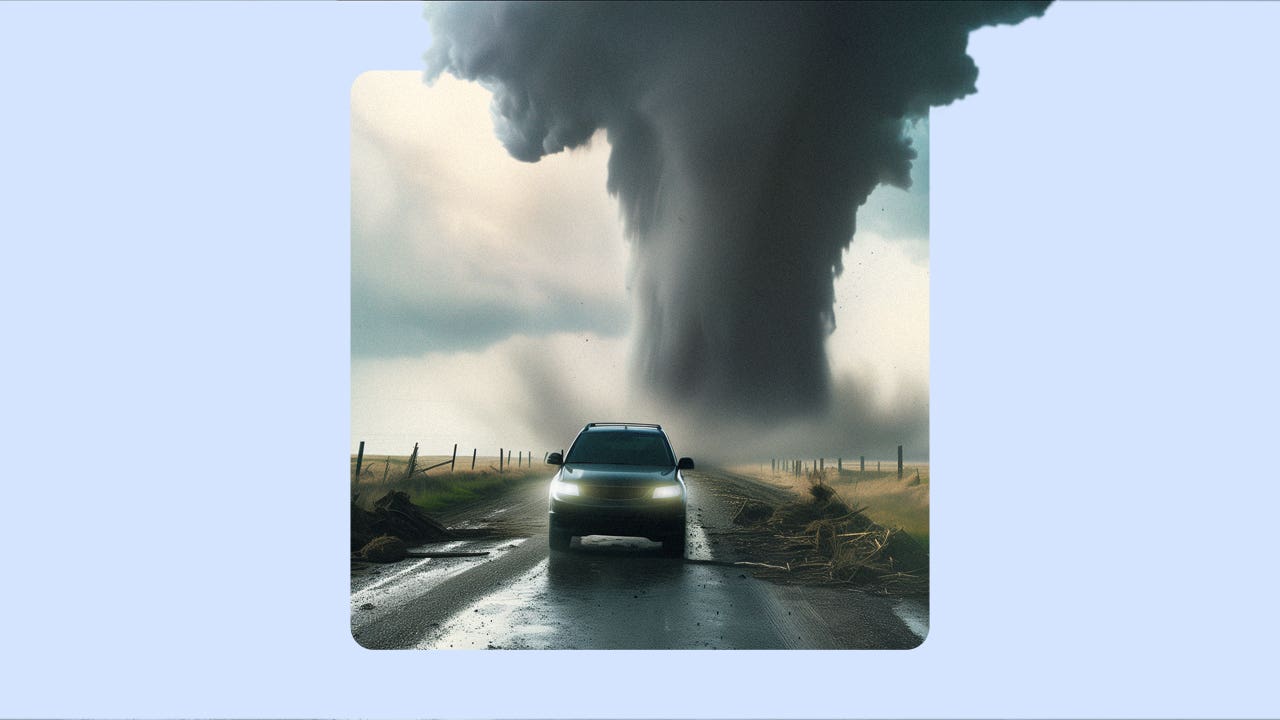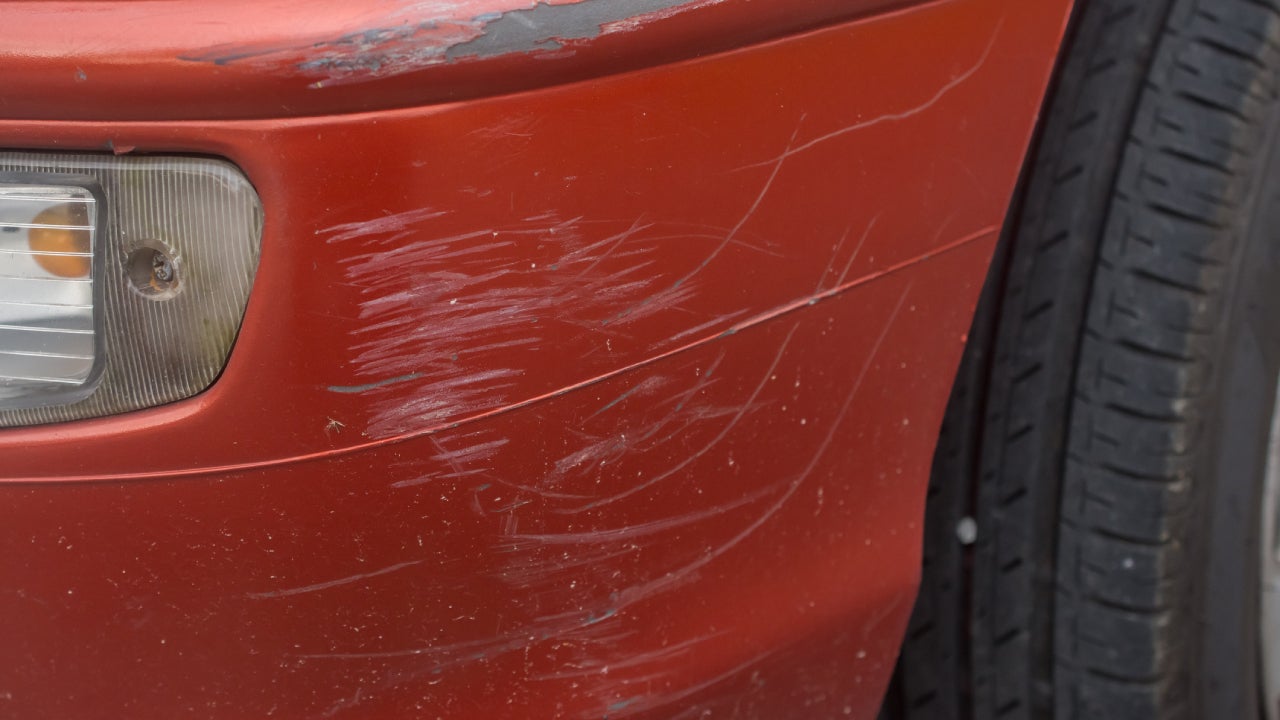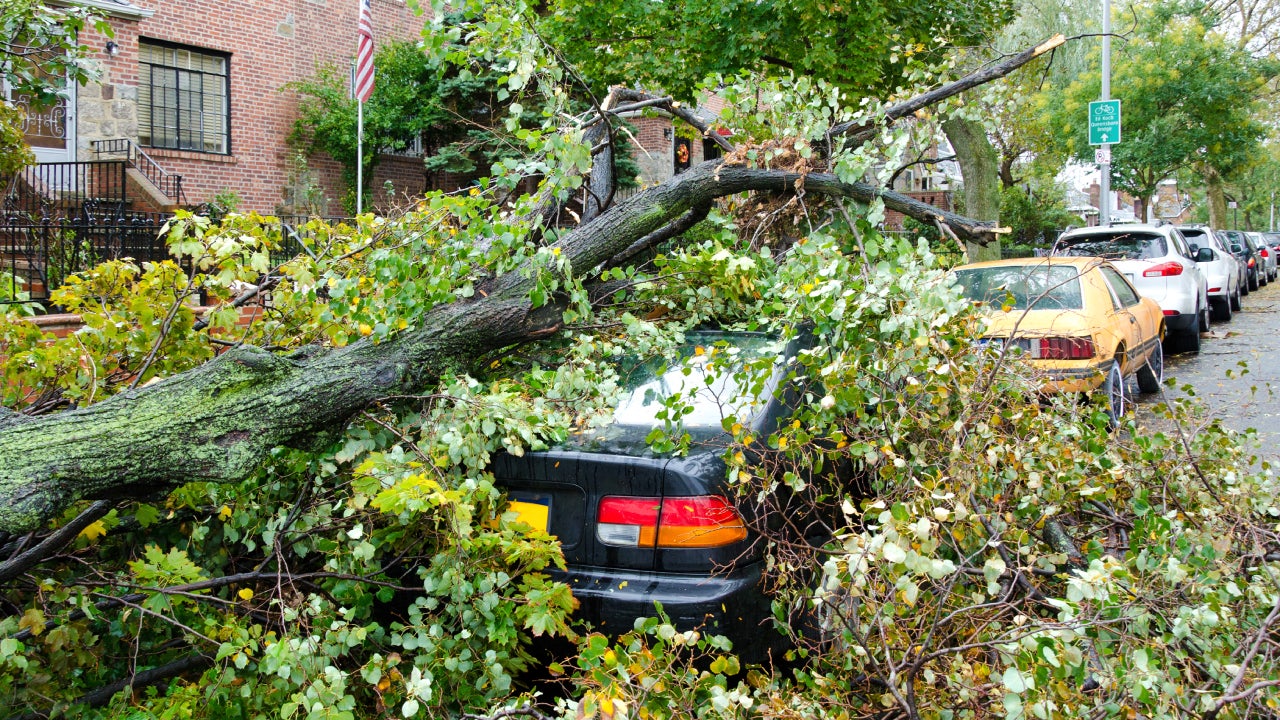Does car insurance cover tornado damage?

A tornado typically means bad news for homes, cars and other personal property in its path. Each year, more than 1,200 tornadoes are reported in the U.S. Illinois, Alabama and Colorado had the most activity in 2023. Still, tornadoes can occur in almost every part of the country and damage your belongings, including your vehicle. If you’re wondering if car insurance covers tornado damage, the short answer is it depends on the coverage you select.
Does insurance cover tornado damage to cars?
Most states require drivers to carry at least a minimum amount of liability car insurance to legally operate a vehicle. However, liability coverage will not repair your vehicle if it is damaged in a tornado or other storm. Liability insurance covers the other person if you cause injury or property damage during an accident.
Collision is an optional coverage drivers can purchase to help cover repair costs for their vehicle if they cause an accident. It is often purchased together with comprehensive coverage to create what’s commonly referred to as a full coverage car insurance policy.
If you want tornado or storm damage coverage, then the right coverage to help repair or replace your vehicle is comprehensive coverage. Comprehensive insurance covers:
- Broken windows and windshields
- Fire
- Hitting an animal
- Theft of the vehicle
- Vandalism
- Weather-related damage
When adding comprehensive and collision coverage to your auto insurance policy, you will need to choose a deductible for each coverage. A deductible is the amount you pay out of pocket in the event of a covered claim. The higher the deductible, generally the less expensive the auto insurance premium, but the more you have to pay if you file a claim.
Types of tornado damage covered by comprehensive insurance
Here are a few storm-specific situations that should be covered so long as drivers carry sufficient car insurance coverage:
- Damage caused by downed power lines
- Electrical damage
- Falling tree limbs
- Flying debris
- Flooding
- Hail damage
- Lightning
A tornado can cause significant damage to your vehicle — or even total it in the most severe instances. Strong tornadoes can easily pick up a car and carry it away from its original location. Debris like gravel, tree limbs, furniture or even other cars flying around inside a tornado can also damage your car, denting it, breaking glass or worse.
Plus, tornadoes can bring large amounts of rain to an area in a short amount of time, which can cause flooding. If this is the case and water from the tornado and resulting storm damages your car, comprehensive coverage covers flooding. Lightning is another weather hazard that could cause electrical and other physical damage to your car, and it is also covered by comprehensive coverage.
Will a tornado claim increase my car insurance rates?
Any claim you file with your car insurance company has the potential to increase your rates. Comprehensive claims are generally not penalized as heavily as collision claims, since car insurance companies understand a comprehensive claim is usually out of the driver’s control.
If there is a lot of damage caused by a storm or tornado in your area, auto insurers may increase rates for everyone, even if you did not file a claim for damage. This is called a rate revision and must be approved by the state before an insurance company can change the rates.
How to file a tornado insurance claim
If you have comprehensive coverage and your car was damaged by a tornado, consider filing a claim as soon as possible. The storm has likely damaged hundreds of other vehicles and homes, which can cause insurance companies to become inundated with claims.
Body shops and mechanics may also become backed up, which could cause long wait times to get your vehicle repaired. When filing a claim for tornado damage:
- Before cleaning up any debris, take pictures of the scene. Get close-up pictures or videos of the damage to your car to supply to the insurance company.
- File a claim over the phone, online or using the car insurance company app. Provide supporting documentation, including the pictures or video you took in the first step.
- Write down your claim number so you can easily track your claim.
- Be patient. This is not always easy to do when you’ve been through a traumatic event, but it may take some time for a claims adjuster to contact you about the claim. To expedite the process, you may want to contact your preferred repair shop to see if they can do an estimate. They may be able to send the information directly to your insurance company.
How to protect your car from tornado damage
If a storm, tornado or another type of severe weather is expected, protecting your car beforehand could prevent or reduce damage. Here are a few things you can do ahead of time:
- Avoid parking in low-lying areas prone to flooding
- Do not park near:
- Gravel driveways or parking lots
- Loose furniture or other debris heavy winds could pick up
- Telephone poles
- Trees
- Store your vehicle in an enclosed structure or garage
Frequently asked questions
-
Car insurance companies will typically cover weather-related damage if the policyholder has comprehensive coverage and the weather event isn’t excluded from the policy. Most homeowners insurance policies will cover windstorm or tornado damage, but certain weather events like earthquakes and floods aren’t automatically included in standard policies. To determine if your insurance provider will cover your vehicle or home for weather-related damage, ask your insurance agent to walk you through your policies.
-
According to weather.gov, if you can, drive away from the tornado as quickly and safely as possible. Experts recommend getting to the closest storm shelter where you can wait it out. If there aren’t well-built structures or a storm shelter nearby, you could either stay in your vehicle and cover your head or get out and shelter in a low-lying area like a ditch or ravine. Try to protect your head as you wait for the tornado to pass.
-
Following a tornado or severe storm, reach out to your auto insurance company about its claims process. When you call the insurer, an adjuster should explain each step of the filing process. The insurance company may send the adjuster to survey the damage or it might ask you to take photos of your vehicle. Once you’ve submitted a claim online, on the app, or by phone, you should receive a claim number that you can track. Keep in mind that if tornado damage was widespread, it might take your insurer some time to pay out your claim.
-
Tornadoes can cause serious destruction to anything in their path, including vehicles. When you file a claim with your insurance provider to report tornado damage, the adjuster may conclude that the vehicle is a total loss. If that happens and you have adequate car insurance coverage, the insurance company may reimburse you for the loss of your vehicle. The amount you’ll receive is based on the current market value of the car, minus any deductible you owe.
Why we ask for feedback Your feedback helps us improve our content and services. It takes less than a minute to complete.
Your responses are anonymous and will only be used for improving our website.
You may also like

Does homeowners insurance cover tsunami damage?

Does homeowners insurance cover volcanic eruptions?

Does car insurance cover scratches and dents?

Does car insurance cover hurricane damage?


